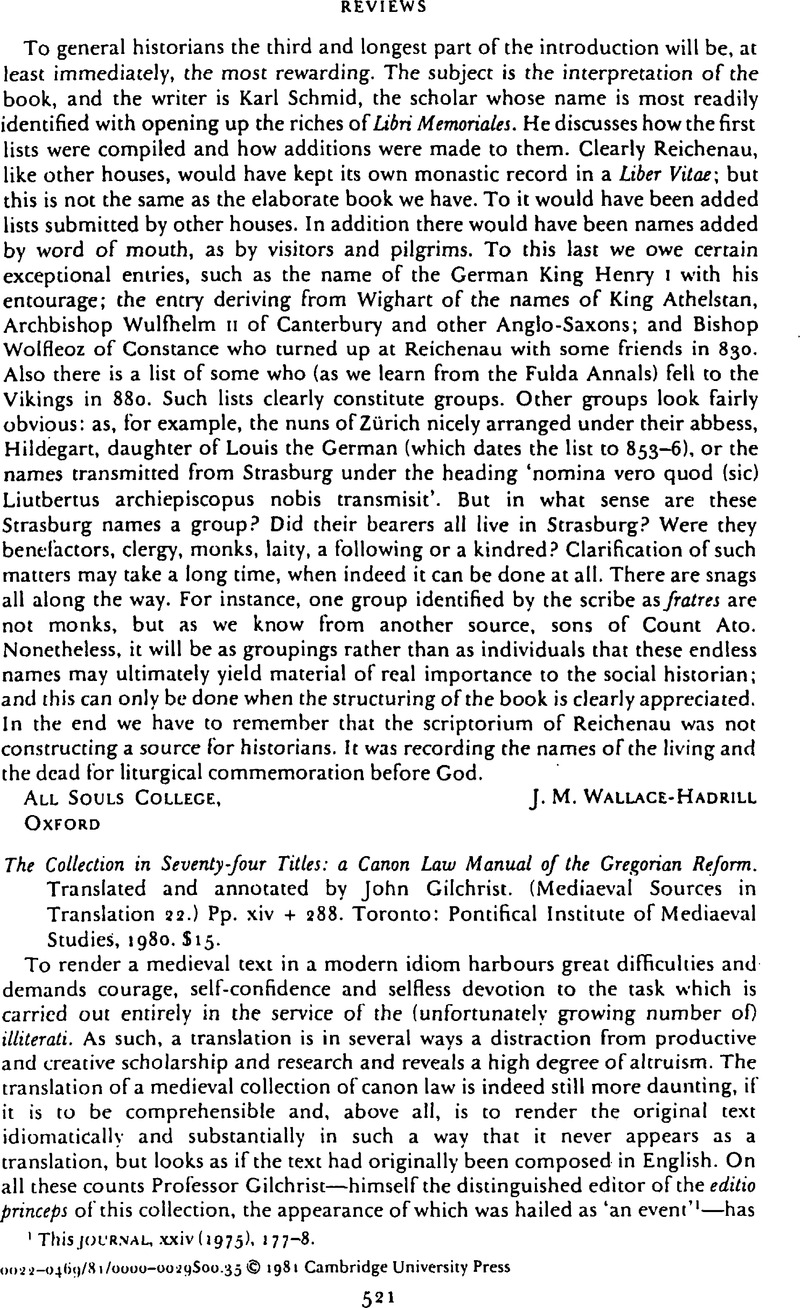No CrossRef data available.
Published online by Cambridge University Press: 25 March 2011

1 This Journal, xxiv (1975), 177–8.
2 In only one instance I noted a slip, chapter 227, which contains the famous letter ol Gelasius 1 (JK 632: ‘Duo quippe sunt quibus principaliter hie mundus regitur …’) which here begins: ‘There are two powers …’ which is precisely not what the pope said who assuredly omitted intentionally any qualification of the ‘duo’, only to distinguish sharply in this same sentence between ‘auctoritas’ and ‘potestas’. An inaccuracy I noted is at 12: the first letter of Gregory VII to Hermann of Metz is in Reg. iv. 2 (and not: Reg. ii. 55a which contains the D.P.). Surely, cap. 3 of the so-called Decretum Gelasianum, the decree of the Roman synod held under Damasus in 382, has a genuine ancestry (chapter 22, at 85).
3 I am more and more inclined to think that this collection necessitates a different approach and different criteria from those hitherto employed, if the seemingly intractable problems of date, origin, purpose are to be solved in a fruitful manner. Why, for instance, should the author start the very first chapter (on Roman primacy) with the Deuteronomy passage which really has nothing to do with the topic (Anselm rightly placed it in his chapter on appellate jurisdiction, ii. 1)? Why should this author omit all reference to the Ps. Clementine letter which was so clearly tailored for his purpose (indeed quoted by Anselm in proper context) and which was lavishly displayed in Ps. Isidore? The author’s use of Ps. Isidore needs, I think, further examination, though no final judgement can be given until Hinschius is superseded by a critical up-to-date edition.
4 One might query the use of the term ‘imperialist’ (8, 42, 43), especially in connection with Henry iv who was never a legitimate emperor and in Oregon’s eyes a desposed king. Why should the Collectio Britannica have been compiled c. 1090 ‘in the region of Rome’ (33)?